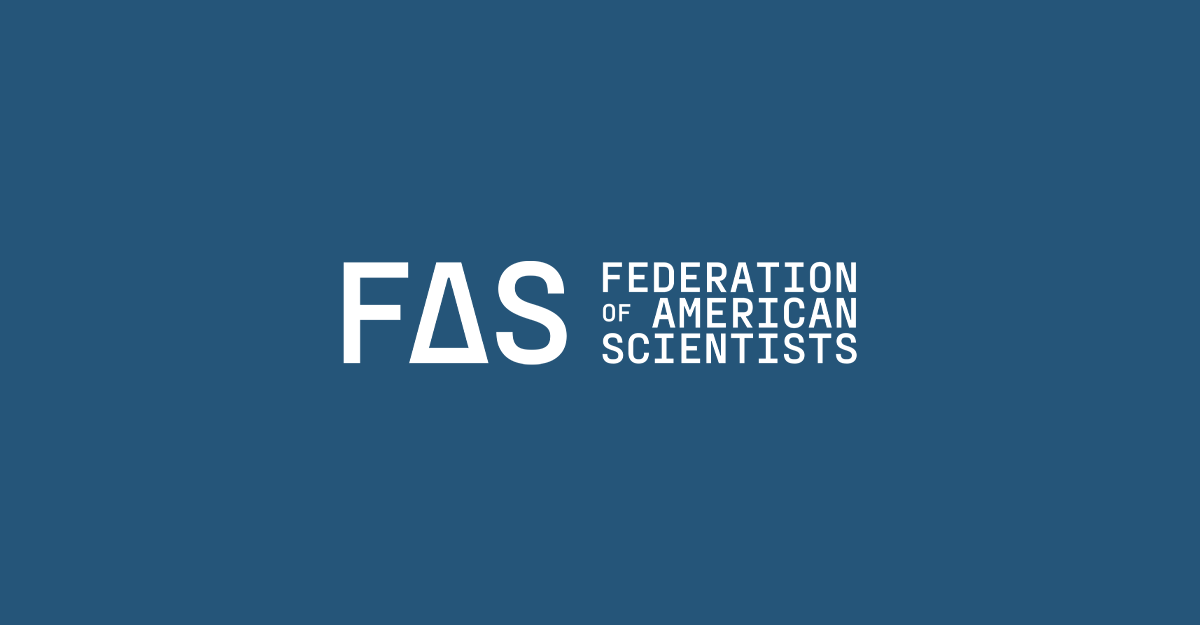
Position on the Senate Companion of The Fix Our Forests Act
The Federation of American Scientists supports the Senate version of the Fix Our Forests Act.
Uncontrolled wildfire is an intensifying national crisis. Just this year, wildfires have devastated communities around Los Angeles and affected states in all parts of the country, from Florida to Texas and Oklahoma to the Carolinas. To tackle this crisis, the House of Representatives in January passed H.R. 471, the Fix Our Forests Act, with large bipartisan margins. FAS applauds Senators Curtis, Hickenlooper, Padilla, and Sheehy for coming together to build on H.R. 471, resulting in an even stronger version of this legislation now introduced as a companion bill in the Senate.
“As FAS continues to emphasize, failing to address the root causes of devastating wildfires is a policy choice. And it’s a choice we can no longer afford,” said Daniel Correa, Chief Executive Officer of the Federation of American Scientists. “Swift passage of the Fix Our Forests Act in the Senate would put us on track to better manage the entire wildfire lifecycle of prevention, suppression, and recovery, including through smart and systematic use of science and technology for decision support.”
FAS championed important provisions of the Fix Our Forests Act, ensuring that both the House and Senate versions of this legislation include essential, evidence-based reforms to improve fuel management and facilitate rapid uptake of innovative approaches to fire management. FAS particularly supports Sec. 102, which would create the Wildfire Intelligence Center – a hub to coordinate wildfire management across federal agencies and embed science, technology, and real-time data into decision making.
Other key provisions include:
- Sec. 117 – Utilizing livestock grazing for wildfire risk reduction, including fuels reduction and post-fire recovery. Livestock grazing is a proven strategy to reduce hazardous fuels and combat invasive species while partnering with local ranchers and farms.
- Sec. 131 – Defining federal prescribed fire activity. Confronting the wildfire crisis must include increased use of prescribed fire; this bill rightly prioritizes the use of prescribed fire in large, cross-boundary projects near wildland-urban interfaces, Tribal lands, high-risk fire zones, or critical habitats.
- Sec. 138 – Facilitating the responsible utilization of prescribed fire. Increased use of prescribed fire also includes ensuring that prescribed fire is monitored and safely extinguished.
- Sec. 201 – Creating the Community Wildfire Risk Reduction Program. Coordinating federal wildfire risk reduction efforts across federal agencies is necessary to enhance resilience in the built environment.
- Sec. 202 – Creating the Community Wildfire Defense Research Program. This section invests in science, research, and innovation related to managing wildfire in the built environment.
- Sec. 204 – Improving the Community Wildfire Defense Grant Program by expanding eligible grant projects to include structure retrofits, defensible space creation, infrastructure hardening, and deployment of wildfire technologies
- Sec. 301 – Establishing a partnership program for biochar demonstration projects. Biochar can enhance forest health, increase carbon sequestration, spur job creation, and build new markets. 50% of biochar feedstocks for demonstration projects carried out under this section are required to come from forest thinning or management on public lands.
- Sec. 302 – Implementing accurate reporting systems to measure hazardous fuels reduction.
- Sec. 303 – Creating a public-private wildfire technology deployment and demonstration partnership. This section will accelerate testing, implementation, and deployment of fire technologies through partnerships between government agencies and private, nonprofit, and academic entities.
- Sec. 401 – Establishing a wildland fire management casualty assistance program.
“The science is clear: tackling the wildfire crisis requires better forest management, increasing the use of prescribed fire, and investing in and deploying the next generation of wildfire technologies. The Fix Our Forests Act will get this urgently needed work done. Now is the time for the Senate to build on the bipartisan leadership demonstrated by the sponsors and pass this bill,” said James Campbell, Wildfire Policy Specialist at the Federation of American Scientists.
FAS is launching the Center for Regulatory Ingenuity (CRI) to build a new, transpartisan vision of government that works – that has the capacity to achieve ambitious goals while adeptly responding to people’s basic needs.
This runs counter to public opinion: 4 in 5 of all Americans, across party lines, want to see the government take stronger climate action.
Cities need to rapidly become compact, efficient, electrified, and nature‑rich urban ecosystems where we take better care of each other and avoid locking in more sprawl and fossil‑fuel dependence.
Hurricanes cause around 24 deaths per storm – but the longer-term consequences kill thousands more. With extreme weather events becoming ever-more common, there is a national and moral imperative to rethink not just who responds to disasters, but for how long and to what end.